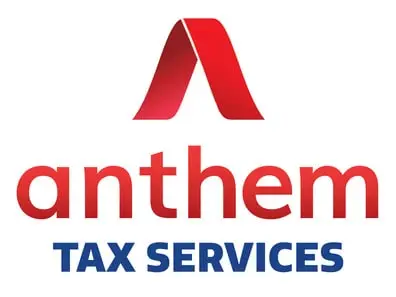
Recent data suggests that Americans owed $114 billion in back taxes, interests, and penalties to the IRS in 2020. Due to the COVID-19 pandemic and the cost of living crisis, it is believed that this number has only grown. If you are in debt with the IRS, it’s essential to understand the action they may take and what you should do next.
If you do not take steps to clear your debt, then you will receive an IRS garnishment letter. This is also referred to as a “notice of intent to levy.’ It acts as a final warning that the government is prepared to collect any outstanding debt you may have through an IRS levy.
During this procedure, the Internal Revenue Service may take your wages, property, or other assets to cover the cost of your tax bill.
Receiving an IRS garnishment letter can cause anxiety and dread. However, it’s important not to panic. You can take numerous steps here to prevent a potential financial disaster.
Owe back taxes?
Our tax relief experts can help keep the IRS out of your life
Is The IRS Garnishment Letter Your Only Warning?
First, be aware that it’s unlikely you will only receive one letter before the IRS begins to acquire your assets. Instead, you will likely receive multiple mailed notices. These may have different titles, such as:
- Notice for unpaid taxes
- A reminder of due taxes
- Second reminder
- Notice of Intent to Levy
- Final Notice
Take note of the title for each notice that is sent out. This will provide you with an idea of how much time you have until the IRS begins to seize your assets. There are about five weeks between each notice mailing period. This means that you have approximately four months to take action and make the necessary arrangements.
Will You Always Receive A Warning For An IRS Levy?
According to the Internal Revenue Code 6330, the IRS is legally required to provide a notification in writing before they can begin seizing your assets. This does include money in your bank account or your wages.
You will also be provided with time to appeal the decision before this process begins. If you appeal, you may buy yourself more time. Typically an appeal will give you a couple more months to put a strategy in place. This is because your case will move through various departments.
What Are Your Options After Receiving An IRS Garnishment Letter?
You can explore several options if you receive an IRS garnishment letter. You can pay your tax bill in full; however, this may not be financially viable.
If this is the case, consider paying the cost through installment agreements with the IRS or exploring an Offer in Compromise.
A payment plan will ensure that your debt is more manageable and only costs a small fee. Alternatively, an Offer in Compromise will allow you to settle the debt for less than you owe to ensure it is more manageable. This can also include canceling the interest which is often what makes a larger tax bill so challenging to manage. If you declare hardship, then you can avoid the IRS garnishing wages. However, the IRS requires that you are struggling to “meet basic, reasonable living expenses.” As such, you will need to be in a significantly dire financial situation for this to be an option.
While options like this will not cancel or clear the bill, they will prevent a levy.
Should You File For Bankruptcy?
Filing for bankruptcy should always be viewed as a last resort. Declaring yourself bankrupt will clear your debt, but it will also obliterate your credit history and leave you struggling to get back on track.
Get Tax Relief with Anthem Tax Services
If you have a significant bill that you owe to the IRS, the situation may seem hopeless. However, you must remain calm and speak to a professional. By getting in touch with our tax relief specialist, you will gain the support and advice that you need, learning the best courses of action available to you.
We will analyze your current situation and ensure that you can move forward. They may recommend any number of the options we have mentioned above. This will depend on your history, how much you owe, and your current income. Contact our team today to learn more about this possibility.
Recent data suggests that Americans owed $114 billion in back taxes, interests, and penalties to the IRS in 2020. Due to the COVID-19 pandemic and the cost of living crisis, it is believed that this number has only grown. If you are in debt with the IRS, it’s essential to understand the action they may take and what you should do next.
If you do not take steps to clear your debt, then you will receive an IRS garnishment letter. This is also referred to as a “notice of intent to levy.’ It acts as a final warning that the government is prepared to collect any outstanding debt you may have through an IRS levy.
During this procedure, the Internal Revenue Service may take your wages, property, or other assets to cover the cost of your tax bill.
Receiving an IRS garnishment letter can cause anxiety and dread. However, it’s important not to panic. You can take numerous steps here to prevent a potential financial disaster.

Owe Back Taxes?
Our tax relief experts are only one phone call or form submission away…
Is The IRS Garnishment Letter Your Only Warning?
First, be aware that it’s unlikely you will only receive one letter before the IRS begins to acquire your assets. Instead, you will likely receive multiple mailed notices. These may have different titles, such as:
- Notice for unpaid taxes
- A reminder of due taxes
- Second reminder
- Notice of Intent to Levy
- Final Notice
Take note of the title for each notice that is sent out. This will provide you with an idea of how much time you have until the IRS begins to seize your assets. There are about five weeks between each notice mailing period. This means that you have approximately four months to take action and make the necessary arrangements.
Will You Always Receive A Warning For An IRS Levy?
According to the Internal Revenue Code 6330, the IRS is legally required to provide a notification in writing before they can begin seizing your assets. This does include money in your bank account or your wages.
You will also be provided with time to appeal the decision before this process begins. If you appeal, you may buy yourself more time. Typically an appeal will give you a couple more months to put a strategy in place. This is because your case will move through various departments.
What Are Your Options After Receiving An IRS Garnishment Letter?
You can explore several options if you receive an IRS garnishment letter. You can pay your tax bill in full; however, this may not be financially viable.
If this is the case, consider paying the cost through installment agreements with the IRS or exploring an Offer in Compromise.
A payment plan will ensure that your debt is more manageable and only costs a small fee. Alternatively, an Offer in Compromise will allow you to settle the debt for less than you owe to ensure it is more manageable. This can also include canceling the interest which is often what makes a larger tax bill so challenging to manage. If you declare hardship, then you can avoid the IRS garnishing wages. However, the IRS requires that you are struggling to “meet basic, reasonable living expenses.” As such, you will need to be in a significantly dire financial situation for this to be an option.
While options like this will not cancel or clear the bill, they will prevent a levy.
Should You File For Bankruptcy?
Filing for bankruptcy should always be viewed as a last resort. Declaring yourself bankrupt will clear your debt, but it will also obliterate your credit history and leave you struggling to get back on track.
Get Tax Relief with Anthem Tax Services
If you have a significant bill that you owe to the IRS, the situation may seem hopeless. However, you must remain calm and speak to a professional. By getting in touch with our tax relief specialist, you will gain the support and advice that you need, learning the best courses of action available to you.
We will analyze your current situation and ensure that you can move forward. They may recommend any number of the options we have mentioned above. This will depend on your history, how much you owe, and your current income. Contact our team today to learn more about this possibility.


